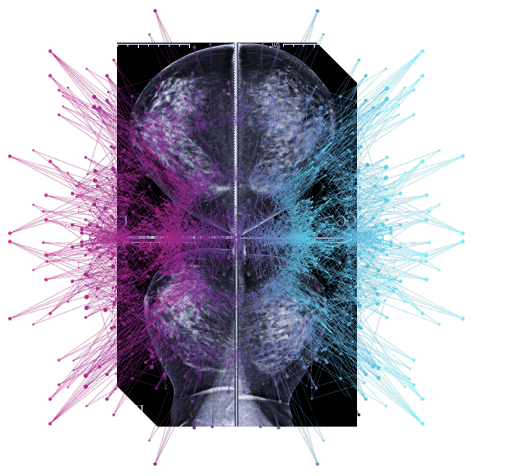Breast cancer represents a widespread global health concern, affecting women across the world and standing as a leading cause of mortality among them. Over the past decade, there has been remarkable progress in technology, which has driven the rise of machine learning (ML) models for breast cancer prediction. These models utilize patient datasets, such as mammograms, to identify patterns linked to breast cancer development. Mammograms, which are X-ray images of the breast, have long been a central tool in breast cancer screening and treatment. In this area, artificial intelligence (AI) plays a vital role, enabling early detection that has a significant impact on survival rates. Despite these advancements, predicting breast cancer continues to be a major challenge for clinicians and researchers. This project outlines a comprehensive plan describing the department’s structure, functions, and contributions to cancer research and early diagnosis. Its main focus is the development of a Clinical Decision Support System (CDSS) designed to enhance healthcare decision-making, particularly in the prediction of breast cancer.
In the field of medical data analysis, breast cancer prediction remains a complex task. Early diagnosis and heightened awareness are critical, as they can significantly lower mortality rates. Automated tools are increasingly important in helping doctors distinguish between malignant and benign tumors. By processing medical data, ML algorithms provide crucial support in both diagnosis and decision-making. Numerous studies emphasize the effectiveness of ML methods in breast cancer prediction, often achieving very low error rates. However, current methods, such as mammography, still present limitations and can cause discomfort, particularly for younger women. This project seeks to evaluate the performance of ML algorithms in predicting breast cancer risk among women, comparing the accuracy, sensitivity, and specificity of urine tests versus mammograms. Through this research, the goal is to strengthen early detection strategies and improve patient care in the ongoing fight against breast cancer


ARCAS research center sits within the MUBS university, but works closely with other research centers across the globe. The center’s themes are cross-cutting research domains; therefore, we are working closely with other research centers/groups within the University, fostering interdisciplinary research. Our vision is to carry out world-leading theoretical and applied research within the center’s defined themes, and with our expertise, we will work with partners and foster international collaboration and knowledge exchange. The main research themes for the center are Augmented Reality, Artificial Intelligence and Cybersecurity.

ARCAS research center sits within the MUBS university, but works closely with other research centers across the globe. The center’s themes are cross-cutting research domains; therefore, we are working closely with other research centers/groups within the University, fostering interdisciplinary research. Our vision is to carry out world-leading theoretical and applied research within the center’s defined themes, and with our expertise, we will work with partners and foster international collaboration and knowledge exchange. The main research themes for the center are Augmented Reality, Artificial Intelligence and Cybersecurity.

Artificial intelligence (AI) represents a dynamic sector for research centers dedicated to enabling machines to mimic human behavior, effectively automating intelligent actions. This fascinating field encompasses a variety of applications, including strategic game playing, sophisticated expert systems, advanced natural language processing, and innovative robotics. In ARCAS, AI is broadly categorized into two primary projects, each with its unique focus and methodologies.
Center of Augmented Reality, Cybersecurity, and
Artificial Intelligence Solutions (ARCAS) is a hub for
advancing knowledge and fostering collaboration in the
critical field of cybersecurity and AI. Here, researchers
explore the exciting potential of artificial intelligence to
create powerful new defenses against cyber threats.


er old collecting she considered discovered. So at parties he warrant oh staying. Square new horses and put better end.
09:00 Am - 11:00 Pm
© 2024 Created with Royal Elementor Addons